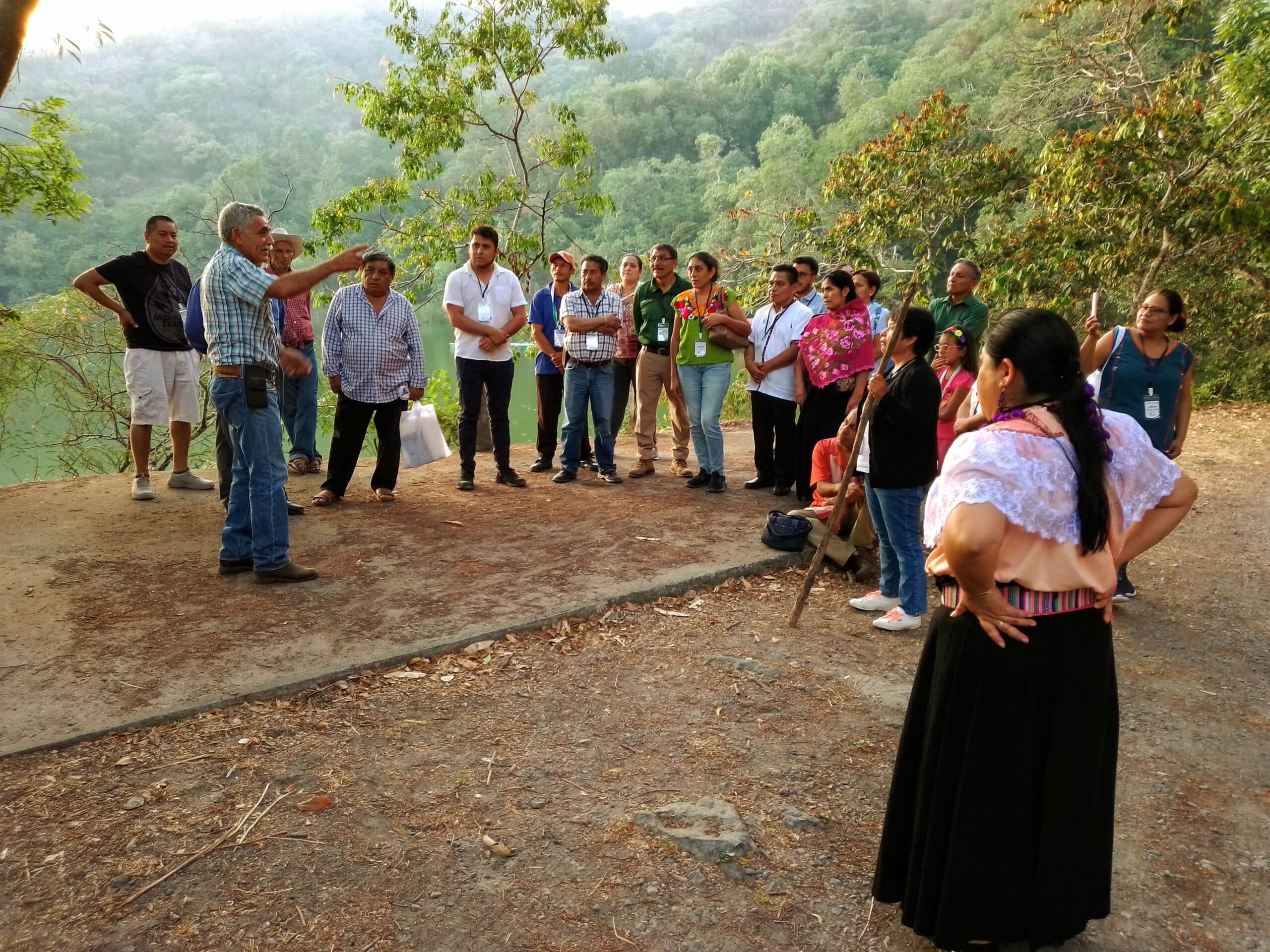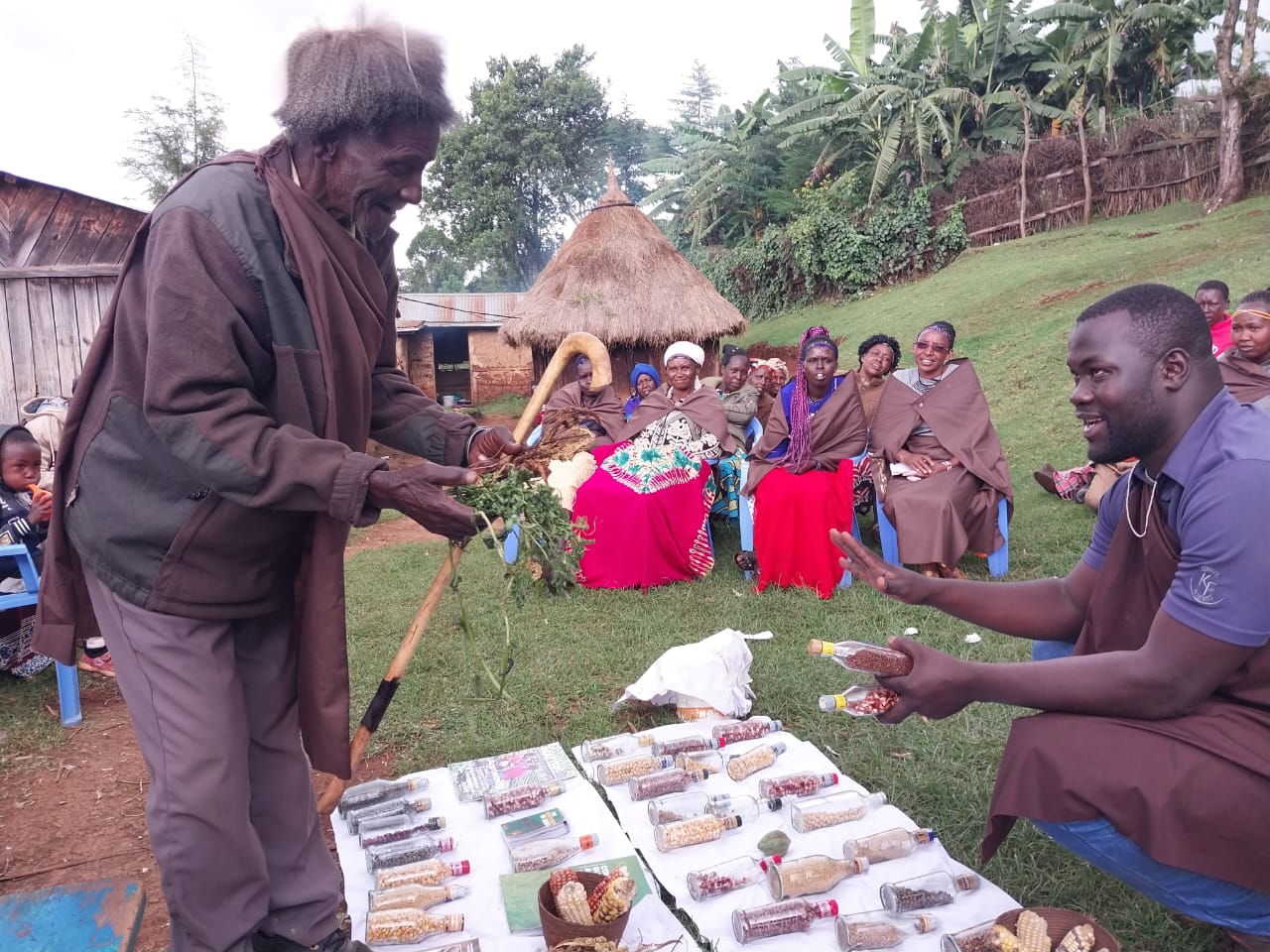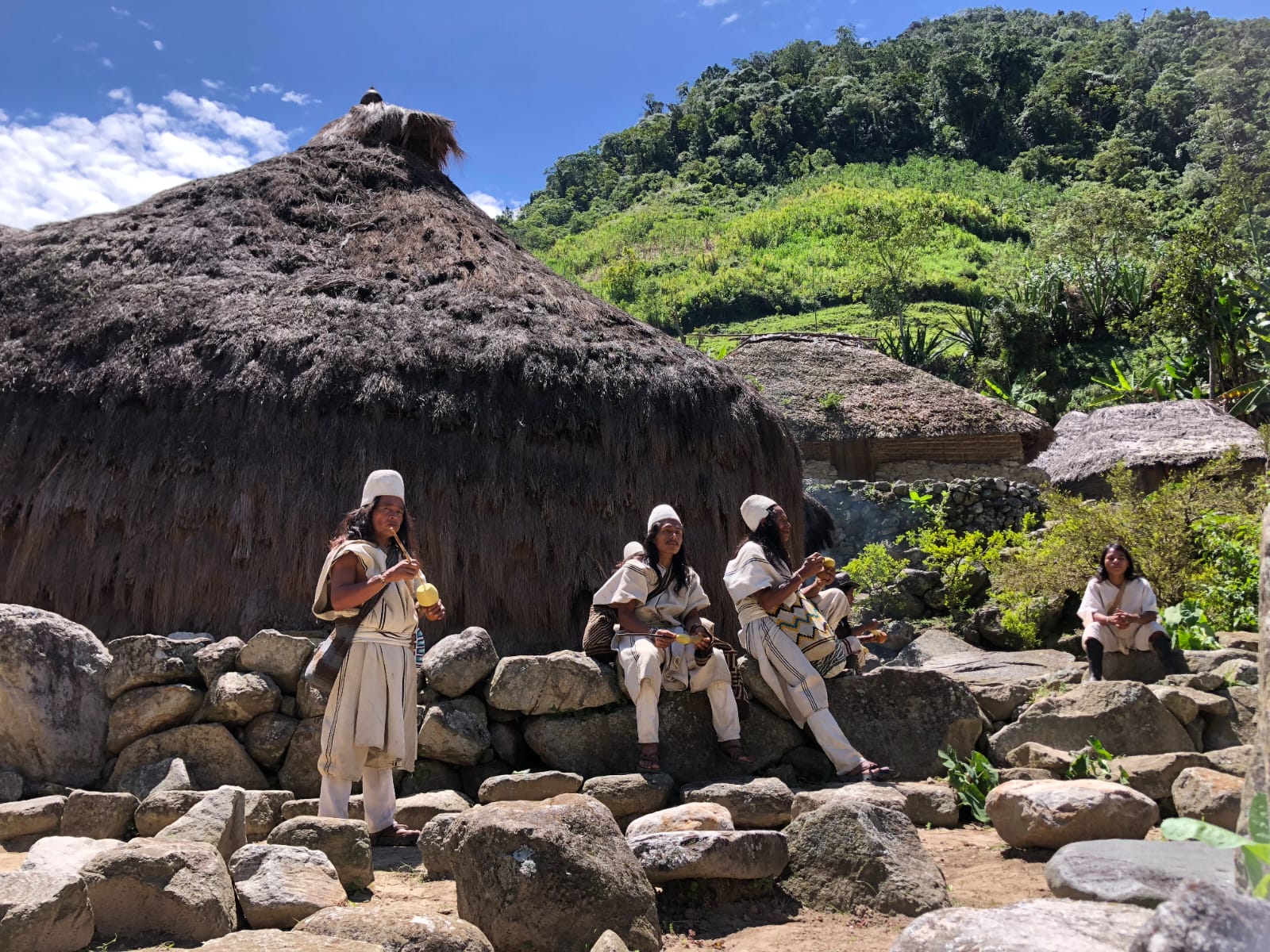Land is Life proudly announces the appointment of four new members with extensive knowledge and experience on the rights of Indigenous peoples to its Board of Directors. Joining the Board are Marcos Terena, Mariam Wallet Aboubakrine and Cecilia Baltazar Yucailla, Indigenous leaders from Brazil, Mali and Ecuador respectively, along with climate change and bio-cultural diversity scholar Gleb Raygorodetsky.
“Our newest Board members embody the spirit of Indigenous rights causes throughout the world and bring their knowledge and experience to our Board. This is an important moment in our history and we are very fortunate to have them as we continue to strengthen Land is Life´s global grassroots work”, says Casey Box, Executive Director.
Land is Life´s Board of Directors brings together Indigenous leaders and activists from various fields of expertise, who are deeply committed to the cause of defending and protecting Indigenous peoples’ rights and territories throughout the world.
Mariano Marcos Terena, one of the founders of Land is Life, is a son of the Xane’ Pueblo. Born in Brazil in 1954, Marcos has devoted his life to working and organizing for the rights of Indigenous peoples and for the Earth itself. In 1977, Marcos co-founded the first Indigenous political movement in Brazil, the Union of Indigenous Nations, and played a critical role in achieving recognition of Indigenous peoples’ rights in the Brazilian Constitution. Marcos was the organizer of the historic World Conference of Indigenous Peoples on Territories, Environment and Development (1992), and the World Indigenous Games (2018). Marcos is also a founding member of the Inter-Tribal Committee, the International Alliance of Indigenous-Tribal Peoples of the Tropical Forests, and the Brazilian Indigenous Institute for Intellectual Property.
About his new role as a member of the board, Marcos comments: “One of our biggest challenges is that national governments still need to recognize Indigenous peoples within their environmental and territorial universe, and their right for a secure habitat in relation to the future. In Brazil, we have over 300 existing Indigenous societies and we need to protect their rights to guarantee their cultural and traditional strengthening. When we understand the experiences of Indigenous peoples in their territories, we are building alternatives to improve the general quality of life for all in the modern world. Land is Life is one of the most important international organizations supporting human rights of Indigenous Peoples, and it’s an unique operational force comprised of Indigenous and non-indigenous volunteers and activists.”
Dr. Mariam Wallet Aboubakrine is a Tuareg woman from Timbuktu. She is a medical doctor from the University of Tizi-Ouzou and holds a Master in Humanitarian Action from the University of Geneva, focusing on interventions in crisis situations. Mariam is a member of Tin Hinane, a nomadic women’s association working for the defense, promotion and development of Indigenous peoples in the Sahel-Sahara region in Africa. In 2016 she founded the Association Tin Hinan Canada, which focuses on education and building bridges among nations and communities. She has joined the United Nations Permanent Forum on Indigenous Peoples for the last six years serving for two consecutive years as chair. Currently, Mariam focuses her advocacy on improving the living conditions of the Indigenous Tuareg peoples. She is also a guest speaker and independent consultant on Indigenous People’s issues.
“One of the major challenges in working and organizing for IP´s rights in Africa is the lack of recognition of Indigenous Peoples. In my own subregion, the Sahel-Sahara, there is an ongoing eight-year conflict. The instability of the political situation has led to a chronic and complex insecurity problem, that is undermining any progress in the promotion and implementation of Indigenous Peoples rights. There is a need for better involvement of Indigenous Peoples in peacebuilding processes in a constructive way. In some other regions in the world like Asia, Indigenous Peoples face the same issue of non recognition, leading to a lack of inclusion in all levels of national and regional institutions. By joining Land is Life, I would like to bring my vision as a Tuareg woman and to promote my people’s and other Indigenous Peoples’ rights, in particular in the areas of traditional knowledge, well-being and health”, says Mariam about her expectations after becoming a member of the Board.
Cecilia Baltazar Yucailla is a Kichwa Indigenous leader from the community of Chibuleo San Francisco in Ecuador. She holds a Master’s degree in Constitutional Law and has been a long-time advocate for the collective rights of Indigenous peoples and nationalities. As an expert in intercultural Indigenous justice and the rights of nature, Cecilia currently works as an advisor to the Constitutional Court of Ecuador.
Asked about her new role on Land is Life´s board, Cecilia says: “The intensive exploitation of natural resources within territories of Indigenous Peoples and Nationalities, is one of our most serious problems now. Therefore, It’s essential to promote training processes of grassroots Indigenous leaders so that they can be the guarantors of collective rights, given constant violations by state institutions and companies. Each Indigenous nationality needs to strengthen their knowledge and experiences in the exercise of collective rights, and make efforts to influence state institutions to design and implement public policies that guarantee them. I am really happy to bring my experience in constitutional and Indigenous intercultural justice to Land is Life, and on supporting Indigenous authorities in the judicial proceedings undertaken against the State with the aim of protecting the rights of Indigenous peoples and nationalities.”
Dr. Gleb Raygorodetsky is an award-winning author, adjunct Professor at the University of Alberta and a Research Affiliate with the POLIS Project on Ecological Governance, at the University of Victoria. Born and raised in a coastal village in Kamchatka, Russia, Gleb is a biocultural heritage expert, with over two decades of experience in the areas of Indigenous community-based conservation, climate change resilience, and philanthropy. He has written about Indigenous peoples around the world in a number of magazines, including Cultural Survival, Alternatives and National Geographic and is the author of “Archipelago of Hope”, and “Gwich’in Words About the Land”. Gleb is also a co-founder of Conversations with the Earth (CWE) – an Indigenous-led multimedia initiative that amplifies Indigenous voices in the global discourse on climate change.
“There is poor understanding of the direct and indirect benefits of Indigenous ways of knowing, doing and being for achieving local, national and global goals of biodiversity conservation, climate change mitigation and adaptation, as well as human and ecosystem health and wellbeing,” Gleb points out on the biggest challenges in working and organizing for the rights of Indigenous people. He continues, “traditional Indigenous institutions for environmental governance are rarely recognized, while Indigenous capacity and resources available to engage in community-led initiatives are limited. In a world where we value economy over ecology, where greed supplants care, where “rights” blind us to responsibilities, where we worship a golden idol over Mother Earth, it is increasingly challenging for Indigenous peoples to fulfill their ancestral sacred obligations of looking after their traditional territories in the face of converging global crises—biodiversity loss, droughts, mega-fires, floods, rising temperatures, pollution, ocean acidification.”
About his new role at the Board, Gleb says “It is an honor and a privilege to contribute over two decades of my practical, research, and leadership experience in the areas of philanthropy; Indigenous community-based conservation, management, monitoring and research; and climate change resilience to advance Land is Life’s mission of directly supporting grassroots Indigenous organizations through sustained, holistic partnerships”.




